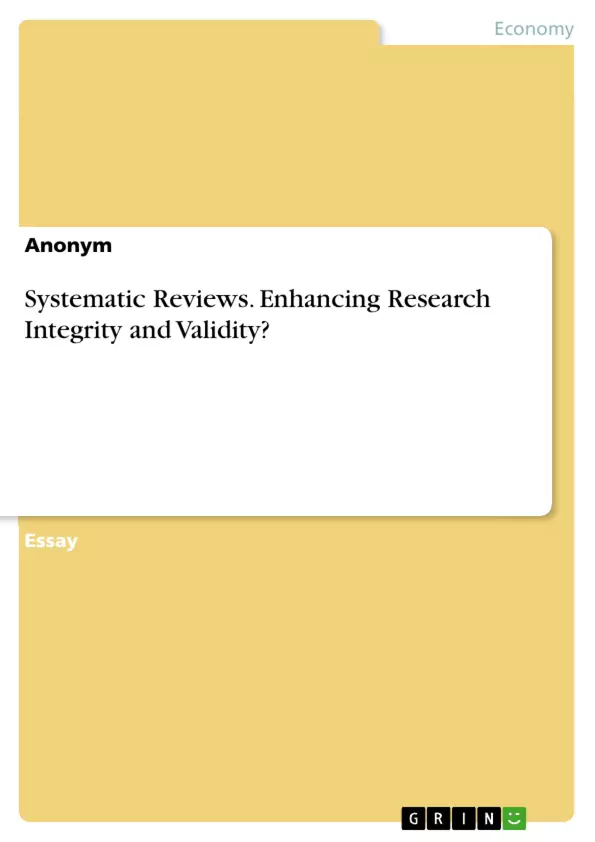This essay delves into the weaknesses, advantages, and difficulties associated with both traditional literature reviews and systematic reviews. By exploring these facets, the nuances of literature review methodologies are illuminated, and the importance of methodological rigor in research endeavors is underscored.
Embarking on the journey of compiling a literature review is no simple feat. It demands adept organizational skills and efficient resource management. This crucial stage in the research process serves multifaceted purposes: elucidating the research's connection to prior studies, showcasing the relevance and novelty of the research problem, justifying the chosen methodology, and demonstrating preparedness to undertake the research endeavor. Through a literature review, the motivation behind the research, the chosen methodology's rationale, and the specific research direction are clarified.
While narrative reviews offer valuable insights, they often lack the systematic exploration inherent in their methodology. Researchers may inadvertently succumb to biases, focusing on select studies within a chosen area based on availability or author preference, thus introducing elements of selection bias. Additionally, narrative reviews may suffer from organizational shortcomings, a lack of critical analysis, and an insular perspective. In contrast, systematic reviews adhere to a comprehensive plan, employing rigorous search strategies and often incorporating meta-analysis to synthesize data from multiple studies.
Inhaltsverzeichnis (Table of Contents)
- Introduction
- Six weaknesses of a literature review
- Advantages of conducting a systematic review
- Difficulties associated with doing a systematic review
- Concluding remarks
Zielsetzung und Themenschwerpunkte (Objectives and Key Themes)
This text aims to provide a critical examination of traditional literature reviews in research, highlighting their shortcomings and advocating for the adoption of systematic review methodologies. The text emphasizes the importance of comprehensive and unbiased evidence synthesis in various fields, particularly in management research.
- The limitations of traditional literature reviews
- The benefits of systematic reviews for robust research
- The role of evidence-based practice in research
- The challenges and complexities of conducting systematic reviews
- The potential for reducing bias and improving research quality
Zusammenfassung der Kapitel (Chapter Summaries)
- Introduction: This chapter introduces the concept of literature reviews and their significance in the research process. It distinguishes between traditional narrative reviews and systematic reviews, highlighting the inherent biases and limitations of the former.
- Six weaknesses of a literature review: This chapter delves into the specific shortcomings of traditional literature reviews, exploring issues like cherry-picking, persistent bias, focus on results, emphasis on statistical significance, lack of critical appraisal of methodology, and the 'file-drawer problem'.
- Advantages of conducting a systematic review: This chapter contrasts systematic reviews with traditional reviews, highlighting their advantages in terms of transparency, comprehensiveness, objectivity, and reduction of researcher bias. The chapter also emphasizes the role of systematic reviews in providing a robust foundation for future research and evidence-based practice.
Schlüsselwörter (Keywords)
The main keywords and focus topics of this text include traditional literature review, systematic review, evidence-based practice, bias, research methodology, meta-analysis, qualitative research, quantitative research, research quality, and management research.
- Quote paper
- Anonym (Author), 2018, Systematic Reviews. Enhancing Research Integrity and Validity?, Munich, GRIN Verlag, https://www.grin.com/document/1446239



